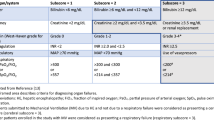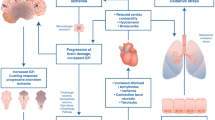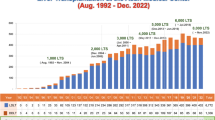Abstract
Purpose of Review
In October 2018, the Organ Procurement and Transplantation Network (OPTN) revised the donor heart allocation system in an attempt to prioritize those patients with highest clinical urgency, reduce waitlist morality, and improve geographic equity in organ allocation. Our goal was to review the changes in the heart allocation policy and its impact on transplant characteristics and outcomes.
Recent Findings
After the new 2018 donor heart allocation system became effective, there has been a trend toward increased use of temporary mechanical circulatory support. Also, initial reports suggested reduced post-transplant survival, although the initial analysis was limited by short follow-up and small sample size. Recent reports however illustrate survival outcomes similar to those of the previous allocation system.
Summary
The new donor heart allocation policy has been associated with a change in management strategies for bridging patients to transplantation, with increased utilization of temporary mechanical circulatory support, with still uncertain effects on post-transplant survival.
Similar content being viewed by others
References
Papers of particular interest, published recently, have been highlighted as: • Of importance
Schlendorf KH, Zalawadiya S, Shah AS, Wigger M, Chung CY, Smith S, et al. Early outcomes using hepatitis C-positive donors for cardiac transplantation in the era of effective direct-acting anti-viral therapies. J Heart Lung Transplant. 2018;37:763–9.
Mudge GH, Goldstein S, Addonizio LJ, Caplan A, Mancini D, Levine TB, et al. 24th Bethesda conference: cardiac transplantation. Task Force 3: recipient guidelines/prioritization. J Am Coll Cardiol. 1993;22:21–31.
Singh TP, Almond C, Givertz MM, Piercey G, Gauvreau K. Improved survival in heart transplant recipients in the United States: racial differences in era effect. Circ Heart Fail. 2011;4:153–60.
Givertz MM. Heart allocation in the United States: intended and unintended consequences. Circ Heart Fail. 2012;5:140–3.
Stevenson LW, Kormos RL, Young JB, Kirklin JK, Hunt SA. Major advantages and critical challenge for the proposed United States heart allocation system. J Heart Lung Transplant. 2016;35:547–9.
Hussong S. Administrative developments: DHHS issues organ allocation final rule. J Law Med Ethics. 1999;27:380–2.
OPTN Final Rule: allocation of organs. 42 CFR Part 121.8.
Committee OTT. Four-month monitoring of heart allocation proposal to modify the heart allocation system. 2019.
• Cogswell R, John R, Estep JD, Duval S, Tedford RJ, Pagani FD, et al. An early investigation of outcomes with the new 2018 donor heart allocation system in the United States. J Heart Lung Transplant. 2020;39:1–4 This study was the first analysis of early outcomes with the new donor allocation system change and highlighted the possibility of decreased post-transplant survival.
• Jawitz OK, Fudim M, Raman V, Bryner BS, DeVore AD, Mentz RJ, et al. Reassessing recipient mortality under the new heart allocation system: an updated UNOS registry analysis. JACC Heart Fail. 2020; This study provided longer follow-up to assess outcomes with the new donor allocation system, and demonstrated that post-transplant survival in the new system was comparable to post-transplant survival in the previous allocation system.
Goff RR, Uccellini K, Lindblad K, Hall S, Davies R, Farr M, et al. A change of heart: preliminary results of the US 2018 adult heart allocation revision. Am J Transplant. 2020.
Varshney AS, Berg DD, Katz JN, Baird-Zars VM, Bohula EA, Carnicelli AP, Chaudhry SP, Guo J, Lawler PR, Nativi-Nicolau J, Sinha SS, Teuteberg JJ, van Diepen S, Morrow DA and Critical Care Cardiology Trials Network I. Use of temporary mechanical circulatory support for management of cardiogenic shock before and after the United Network for Organ Sharing donor heart allocation system changes. JAMA Cardiol. 2020.
Teuteberg JJ, Cleveland JC Jr, Cowger J, Higgins RS, Goldstein DJ, Keebler M, et al. The Society of Thoracic Surgeons Intermacs 2019 annual report: the changing landscape of devices and indications. Ann Thorac Surg. 2020;109:649–60.
Hanff TC, Harhay MO, Kimmel SE, Birati EY, Acker MA. Update to an early investigation of outcomes with the new 2018 donor heart allocation system in the United States. J Heart Lung Transplant. 2020;39:725–6.
Davies RR, Goff RR, Lease ED, Daly RC, Hall S. Commentary in reply to Cogswell et al.: An early investigation of outcomes with the new 2018 donor heart allocation system in the United States. J Heart Lung Transplant. 2020.
Kilic A, Hickey G, Mathier MA, Kormos RL, Sultan I, Gleason TG, et al. Outcomes of the first 1300 adult heart transplants in the United States after the allocation policy change. Circulation. 2020;141:1662–4.
Clinical trial to evaluate the safety and effectiveness of the portable Organ Care System (OCS™) heart for resuscitation, preservation and assessment of hearts from donors after circulatory death (DCD Heart Trial). ClinicalTrialsgov Identifier: NCT03831048.
Stevenson LW. Crisis awaiting heart transplantation: sinking the lifeboat. JAMA Intern Med. 2015;175:1406–9.
Author information
Authors and Affiliations
Corresponding author
Ethics declarations
Conflict of Interest
The authors declare that they have no conflict of interest.
Human and Animal Rights and Informed Consent
This article does not contain any studies with human or animal subjects performed by any of the authors.
Additional information
Publisher’s Note
Springer Nature remains neutral with regard to jurisdictional claims in published maps and institutional affiliations.
This article is part of the Topical Collection on Thoracic Transplantation
Rights and permissions
About this article
Cite this article
Lyle, M.A., Vega, J.D. The New US Heart Allocation Scheme: Impact on Waitlist and Post-Transplant Survival. Curr Transpl Rep 7, 340–345 (2020). https://doi.org/10.1007/s40472-020-00301-2
Accepted:
Published:
Issue Date:
DOI: https://doi.org/10.1007/s40472-020-00301-2




